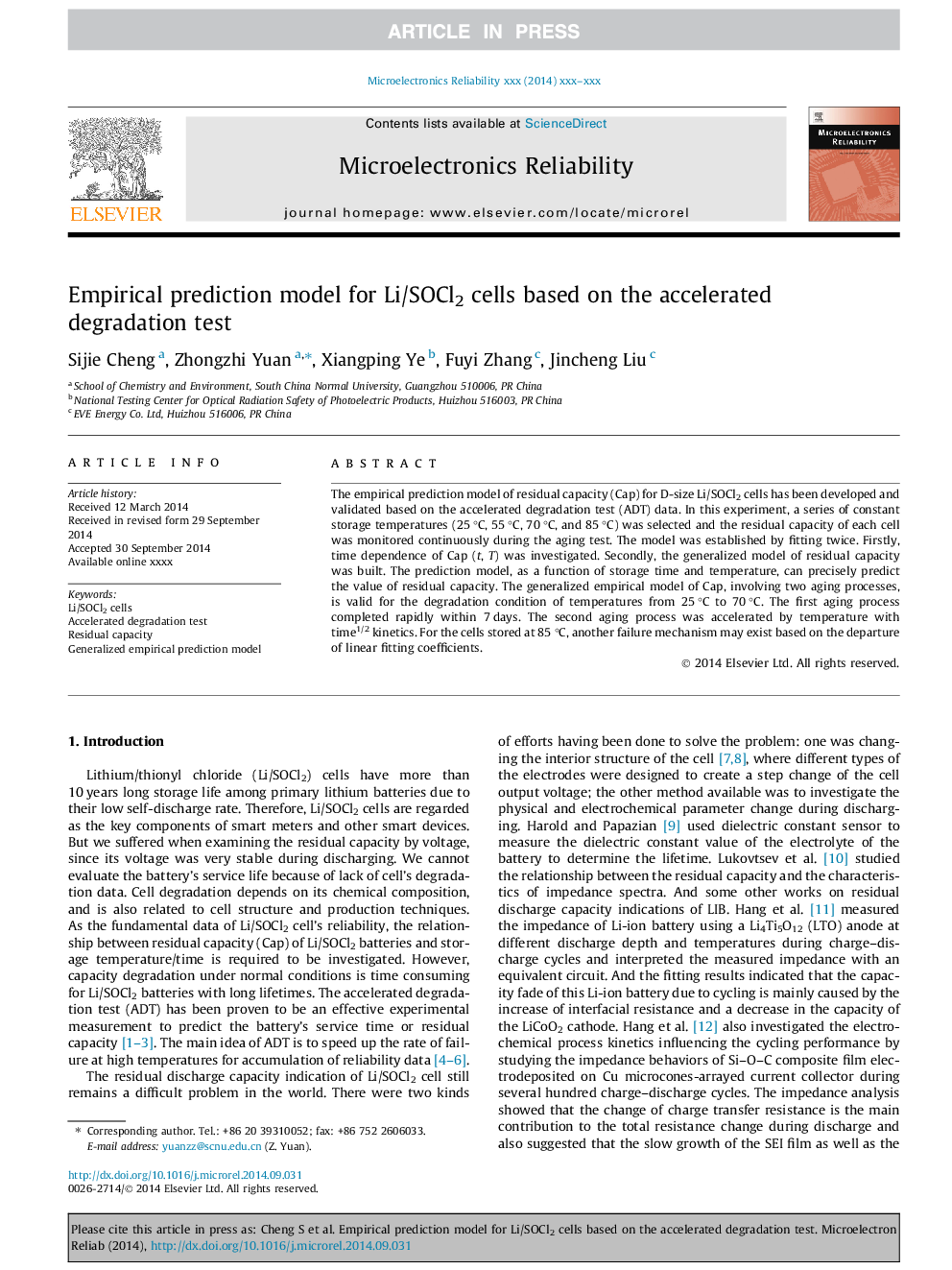| Article ID | Journal | Published Year | Pages | File Type |
|---|---|---|---|---|
| 10364714 | Microelectronics Reliability | 2015 | 6 Pages |
Abstract
The empirical prediction model of residual capacity (Cap) for D-size Li/SOCl2 cells has been developed and validated based on the accelerated degradation test (ADT) data. In this experiment, a series of constant storage temperatures (25 °C, 55 °C, 70 °C, and 85 °C) was selected and the residual capacity of each cell was monitored continuously during the aging test. The model was established by fitting twice. Firstly, time dependence of Cap (t, T) was investigated. Secondly, the generalized model of residual capacity was built. The prediction model, as a function of storage time and temperature, can precisely predict the value of residual capacity. The generalized empirical model of Cap, involving two aging processes, is valid for the degradation condition of temperatures from 25 °C to 70 °C. The first aging process completed rapidly within 7 days. The second aging process was accelerated by temperature with time1/2 kinetics. For the cells stored at 85 °C, another failure mechanism may exist based on the departure of linear fitting coefficients.
Related Topics
Physical Sciences and Engineering
Computer Science
Hardware and Architecture
Authors
Sijie Cheng, Zhongzhi Yuan, Xiangping Ye, Fuyi Zhang, Jincheng Liu,
